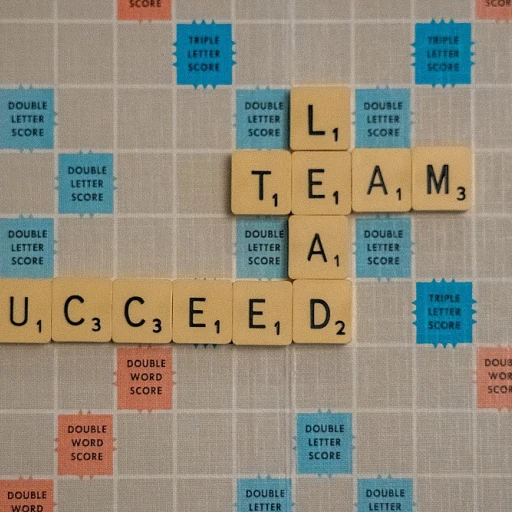
The Purpose of Screening Interviews
Why Screening Interviews Matter
Screening interviews are a crucial part of the hiring process, serving as the first step in identifying the best candidates for a job position. These interviews help companies efficiently narrow down a large pool of applicants to those who are most qualified. By focusing on key aspects such as skills, experience, and cultural fit, screening interviews save both time and resources for the company.
During a screening interview, the goal is to assess whether a candidate meets the basic requirements of the role. This includes evaluating their professional background, understanding their salary expectations, and gauging their interest in the position. The process is designed to ensure that only those candidates who align with the company's needs and values move forward in the recruitment process.
Screening interviews can take various forms, such as phone screenings or video calls, and often involve a set of standardized interview questions. These questions are crafted to quickly assess a candidate's qualifications and fit for the role. Understanding what screening interviews entail will help candidates prepare effectively, increasing their chances of advancing to the next stage of the interview process.
For more insights on how to excel in HR interviews, consider exploring mastering case interview frameworks for HR success.
Types of Screening Interviews
Exploring Various Screening Interview Formats
In the hiring process, screening interviews take on several forms, allowing companies to efficiently evaluate candidates. Understanding each format can help you prepare effectively and showcase your skills and experience. Here's a look at some common types:
- Phone Screenings: Often the first step in the recruitment process, these interviews help assess whether a candidate's basic qualifications and experience align with the job requirements. They offer a convenient way for recruiters to gauge communication skills and potentially salary expectations.
- Video Interviews: Increasingly popular, video screening interviews provide a more personal touch than phone calls, allowing interviewers to evaluate body language and presentation while accommodating remote recruitment needs.
- Online Assessments: These may accompany or replace traditional interviews, focusing on specific skills or knowledge relevant to the position. They are crucial for assessing technical competencies and problem-solving abilities.
Different companies might prefer different screening interview formats based on their unique needs and company culture. For instance, a technology firm might incorporate coding tests, while a customer service role might prioritize role-playing scenarios. Preparing for each style can ensure you present as the best candidate for the job.
Understanding these formats not only helps candidates know what to expect but also prepares them to emphasize their fit for the position. To explore more about relevant HR roles, consider checking the insights on the role of a payroll specialist.
Common Questions in Screening Interviews
Typical Queries Asked During Screening Interviews
During the screening interview process, hiring managers aim to ask questions that will illuminate a candidate's qualifications and suitability for the role. These screening questions often focus on understanding the 'what' of a candidate's past experiences, skills, and career aspirations. Here are some common questions you might encounter:- Experience and Skills: "Can you walk us through your previous work experience that relates to this position?" or "What specific skills make you an ideal candidate for this role?" These questions help the company gauge whether your professional background aligns with the job requirements.
- Company Culture Fit: "Describe a workplace or environment where you were happiest and most productive." Here, the interviewer seeks insights into your cultural fit within their team and organization.
- Work Environment Preferences: "What type of management style do you thrive under?" This can reveal your adaptability and potential compatibility with their management approach.
- Candidates' Career Goals: "Where do you see yourself in five years?" This question helps gauge long-term fit and commitment to the company.
- Availability and Expectations: "What are your salary expectations?" Asking this during the screening stage ensures alignment and avoids misunderstandings later in the hiring process.
Evaluating Candidate Fit
Determining Suitability for the Role
A key component of the screening interview is evaluating how well a candidate's qualifications align with the job requirements. By analyzing both the technical skills and the experience candidates bring, recruiters can assess their proficiency in handling the role. This examination extends beyond just evaluating hard skills—it delves into a candidate's soft skills, which are crucial to thriving in a workplace. Recruiters ask specific screening questions to gauge a candidate's ability to manage responsibilities, navigate complex situations, and contribute positively to the team. For instance, questions about past projects, management style, and problem-solving methods provide valuable insights into their potential fit for the company.Assessing Cultural and Environmental Compatibility
Evaluating options for hire extends beyond skills and experience to understanding if there's a mutual cultural fit between the candidate and the company. Through interview questions designed to unveil a candidate's values, work preferences, and cultural ethics, hiring managers assess how well candidates will mesh with the existing company culture. This involves considering the candidate’s adaptability to the work environment and their receptivity to the core values upheld by the organization. The hiring process may include pre screening methods to comprehend how well the candidate's work ethic aligns with the company’s mission and values. Evaluating such attributes helps in predicting whether they can adapt and grow within the organizational framework.Analyzing Potential for Long-term Success
Another crucial aspect of evaluating candidate fit is understanding their potential for long-term success within the company. This includes discussions around career goals, salary expectations, and opportunities for growth. Discovering whether a job interviewee’s aspirations align with the opportunities available at the company can influence their potential tenure and contribution as a vital part of the recruitment process. This thorough evaluation during initial interviews ensures that only the best candidates who meet both the job requirements and cultural expectations proceed further in the hiring process, saving time and resources while highlighting top talent for the subsequent stages.Tips for Acing Screening Interviews
Strategies for Excelling in a Screening Interview
Navigating the initial steps of the hiring process, particularly during a screening interview, can set a positive tone for your journey towards landing a position. Here are some strategic tips to ensure you make the best impression during your screening stage:- Preparation is Key: Before the interview, it's crucial to understand the company and the specific role you are applying for. Familiarize yourself with the company culture and values to tailor your responses to align with these.
- Practice Common Screening Questions: While each interview screening is unique, being ready for frequently asked questions can boost your confidence. Focus on crafting answers that highlight your experience and skills while demonstrating how you can contribute to the company's goals.
- Communicate Clearly and Concisely: Screening interviews are often brief. Make the most of the time by articulating your thoughts clearly and avoiding lengthy, unstructured responses.
- Highlight Relevant Skills: When discussing your qualifications, emphasize skills that are most relevant to the position. This will showcase your suitability as a candidate and strengthen your fit for the role.
- Demonstrate Enthusiasm and Cultural Fit: Show genuine enthusiasm about the opportunity and make connections to the company's mission. Demonstrating an understanding of and fit with the company culture can be a significant advantage.
- Address Salary Expectations Tactfully: If the topic of salary expectations arises, give a well-considered response. It's wise to have done your research on industry standards, but focus on the value you bring to the role first.
- Follow Up: After the interview, sending a brief thank-you note reiterates your interest in the position and appreciation for the opportunity. It’s a professional touch that keeps you top-of-mind.
The Next Steps After a Screening Interview
Moving Forward After Your Screening Interview
Once your screening interview is complete, it's crucial to stay proactive as the hiring process continues. The conclusion of a screening interview often leaves candidates pondering about the next steps. Understanding this is key in positioning yourself as an organized and eager candidate.- Follow-Up: It's a good practice to send a thank-you email to your interviewer within 24 hours. This should express gratitude for the opportunity and reiterate your enthusiasm about the job role and the company.
- Reflect on Experience: Take some time to reflect on the interview process. Consider the questions asked and your responses. Identify areas where you felt strong and aspects where there might be room for improvement. This reflection will help solidify your strengths and aid in preparation for potential follow-up interviews.
- Be Patient But Prepared: After the initial screening, it's essential to remain patient. The recruitment process often involves multiple stages. In some cases, particularly for high-demand positions, companies might take a while to respond. Meanwhile, prepare for the next round of interviews by researching more about the company culture and potential interview questions related to the specific role.
- Assess Company Fit: Use the information gained during the screening interview to evaluate if the company aligns with your skills and experience. Consider aspects such as management style, work environment, and how well they match your personal career goals.
- Stay Informed: Keep an eye on the company's communications and updates. This will offer insights into their timelines, keeping you informed and ready to act when called upon.












